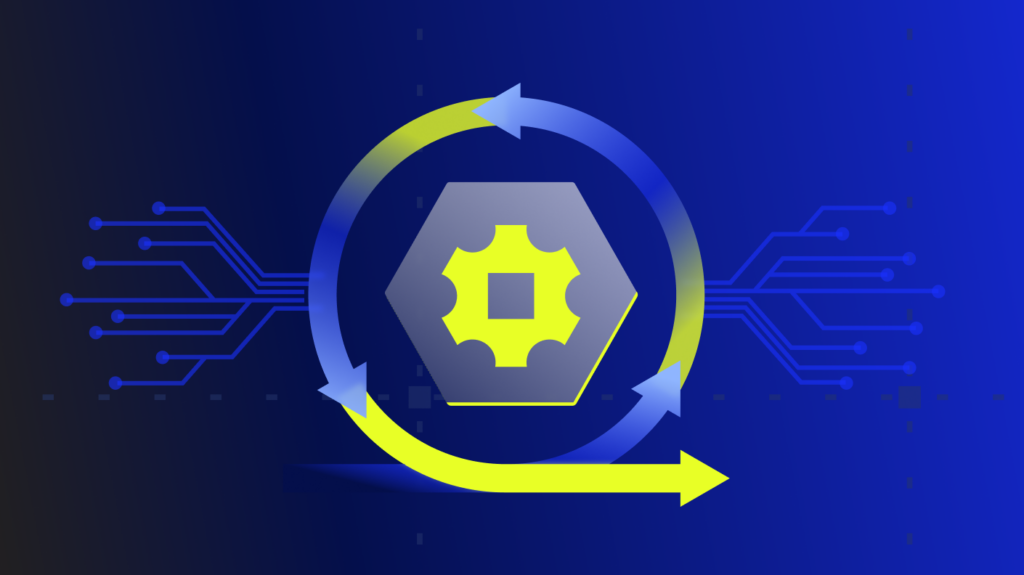Logging as a Service (LaaS) provides a cloud-based, centralized solution for managing log data from applications, servers, and devices, helping IT teams streamline analysis, improve security, and reduce infrastructure costs. By automating data collection and offering scalable storage, LaaS enables fast, efficient insights into system performance and security across diverse environments.
LaaS allows companies to manage log data regardless of whether it comes from applications, servers, or devices. With LaaS, companies can more easily aggregate and collate data, scale and manage storage requirements, set up notifications and alerts, and analyze data and trends. It also allows teams to customize dashboards, reports, and visualizations. It’s a platform designed to accommodate a company’s requirements for scalability.
Unlike traditional log management models, LaaS provides flexible, cloud-based services and support, enabling teams to access data centers instantly through web-based configurations. This agility not only supports real-time decision-making but also helps organizations optimize resources, enhance security, and ensure compliance—all without the infrastructure costs or maintenance burden of traditional solutions.
Key takeaways




Why is log management so challenging?
A conventional approach to log management has its drawbacks. Here are a few of the challenges you might face with log management:
Resource heavy
Log management tools require significant storage and consume CPU time. Not only do they need substantial storage for log data, but they also eat up considerable CPU time collecting, indexing, and managing logs in real time. As a result, you may have fewer resources for locally running tools and applications, slowing down operations or impacting system performance. With LaaS, cloud-based resources scale automatically, allowing log data to be processed without consuming critical on-premises resources.
Poor reliability
Traditional log management tools can crash when they are locally hosted, or hosting servers might fail, especially during high-traffic periods or data surges. This lack of reliability means you could lose valuable log data, impacting your ability to investigate incidents or maintain compliance—a risk no organization can afford. LaaS, by operating in the cloud, offers high availability and built-in redundancy to prevent data loss and ensure continuous log access.
Minimal support
With logging tools, the scenario lends itself to a potentially faulty situation if you’re running more than a few applications across servers. Some companies may run some apps locally while running others in the cloud, creating data silos that complicate log collection and correlation. LaaS simplifies log management for hybrid environments, consolidating logs across on-premises and cloud systems for a unified view, which is critical for complex, multi-cloud infrastructures.
Lack of scalability
For companies relying on a local log retention solution, the host infrastructure’s size may cause challenges. To increase log volume for your company, you’ll probably need access to more resources, which may already be limited, resulting in performance bottlenecks and potential data loss. Scaling up an on-premises solution often requires substantial hardware investments, making it costly and time-consuming. LaaS solutions, on the other hand, scale effortlessly in the cloud, handling increased log volumes without requiring additional infrastructure investment.
High costs and maintenance overheads
Traditional log management solutions often require significant upfront investment in hardware and incur ongoing maintenance costs, as IT teams must regularly update software, manage storage, and troubleshoot issues. With LaaS, these maintenance burdens are significantly reduced, as the service provider handles updates, storage management, and troubleshooting, freeing up your IT team for more strategic tasks.
Logging as a Service (LaaS) empowers organizations to scale log management effortlessly, reduce infrastructure strain, and focus on innovation—not maintenance.
What are the benefits of Logging as a Service?
Logging as a Service maintains records of how the software is used for specific roles and functions across organizations. As a highly scalable solution, LaaS allows companies to focus on analyzing and better understanding the data logs instead of maintaining them.
Ensures greater efficiency
Logging as a Service deploys an enterprise-wide solution quickly and reliably. LaaS solutions ensure innovation with centralized deployment and updates. Outsourcing software management lends greater productivity to teams across the organization. With fast and reliable tracking LaaS options, you can correlate events and perform distributed traces across software environments. For example, e-commerce platforms benefit by quickly correlating user behaviors and system events to improve user experience and minimize downtime during peak shopping periods.
Protects your company
With better security measures, Logging as a Service can configure your infrastructure and log files to better support your company’s needs. LaaS monitors your systems for data breaches to give you better control and protection while supporting regulatory compliance as part of LaaS services. This means the service can quickly and reliably roll out security hotfixes. In industries like healthcare, where patient data privacy is critical, LaaS helps ensure data security and HIPAA compliance by monitoring logs for access control and vulnerabilities.
With LaaS, organizations gain real-time insights and advanced security without the infrastructure burdens of traditional log management.
Visualizes log data
Visualizations are valuable and important. With graphing and data plotting tools used in a LaaS solution, companies can more easily visualize log data without the installation and configuration requirements. Companies save time and money and reduce frustration by avoiding manually importing data. In finance, LaaS visualization tools enable teams to monitor transactions in real-time, allowing for quicker detection of anomalies that could indicate fraud.
Adapts to changing requirements
LaaS services support better adaptability to IT environments. With the realities of cloud infrastructure, container management, and even remote work scenarios, your company and team must be agile. For instance, companies in the tech industry frequently change or scale their cloud infrastructure, and LaaS seamlessly supports this adaptability, ensuring consistent cloud-based log management without reconfigurations.
Accounts for global coverage
Evolutions in IT environments and requirements mean that you should consider global coverage opportunities. LaaS services support regulatory enforcement and intellectual property (IP) protection even if your users are spread across the globe.
Delivers 24/7 support
LaaS services address immediate troubleshooting needs, installing extensions, or reconfiguring logging tools. LaaS supports your need to ensure the functionality and accessibility necessary for operations, and it takes the guesswork out of monitoring those log files. This 24/7 support is particularly valuable for multinational organizations that require constant monitoring to accommodate various time zones and global operations.
LaaS implementation steps
Implementing Logging as a Service is a streamlined process that enables your organization to centralize, monitor, and scale log data effectively. Here’s how to get started:
- Assess current logging needs
Begin by evaluating your organization’s logging requirements. Identify data sources, log volume expectations, compliance needs, and key performance metrics. This assessment helps ensure that the LaaS solution meets your specific use cases and scalability goals. - Select a LaaS provider
Choose a LaaS provider that aligns with your technical requirements and budget. Consider factors such as scalability, ease of integration, customization options, and customer support. Selecting the right provider is essential for smooth integration and long-term support. - Plan for integration with existing systems
Map out how LaaS will integrate with your current IT log infrastructure. Identify the applications, servers, and devices that will feed data into the LaaS platform. This planning helps prevent data silos and ensures comprehensive log coverage across your environment. - Configure alerts and dashboards
Set up custom alerts and dashboards based on your team’s operational priorities. Configure notifications for critical events, such as security breaches or performance anomalies, to ensure proactive log monitoring. Custom dashboards enable faster decision-making by presenting data in an accessible, real-time format. - Test the LaaS setup
Conduct a thorough test of the LaaS system before full deployment. Check data flow from all intended sources, validate alert accuracy, and ensure that dashboards reflect live data. Testing provides confidence that the setup will perform as expected when handling production-level log volumes. - Monitor and optimize over time
Regularly review your LaaS setup to refine configurations and add new data sources as your environment evolves. Continuous optimization enables your LaaS solution to scale effectively with your organization, supporting long-term operational goals and maintaining system performance.
Built for the future with LogicMonitor
Logging as a Service is a powerful, future-ready solution designed to meet the evolving needs of modern enterprises. With its scalability, real-time log analytics, and robust security, LaaS enables organizations to stay agile, reduce infrastructure strain, and gain deeper insights into their data. By shifting log management to a cloud-based model, companies can better manage growing data volumes, simplify compliance, and focus more on innovation and less on maintenance.
At LogicMonitor, we’re committed to helping companies transform the way they manage log data, delivering extraordinary employee and customer experiences while maximizing efficiency.
Subscribe to our blog
Get articles like this delivered straight to your inbox








